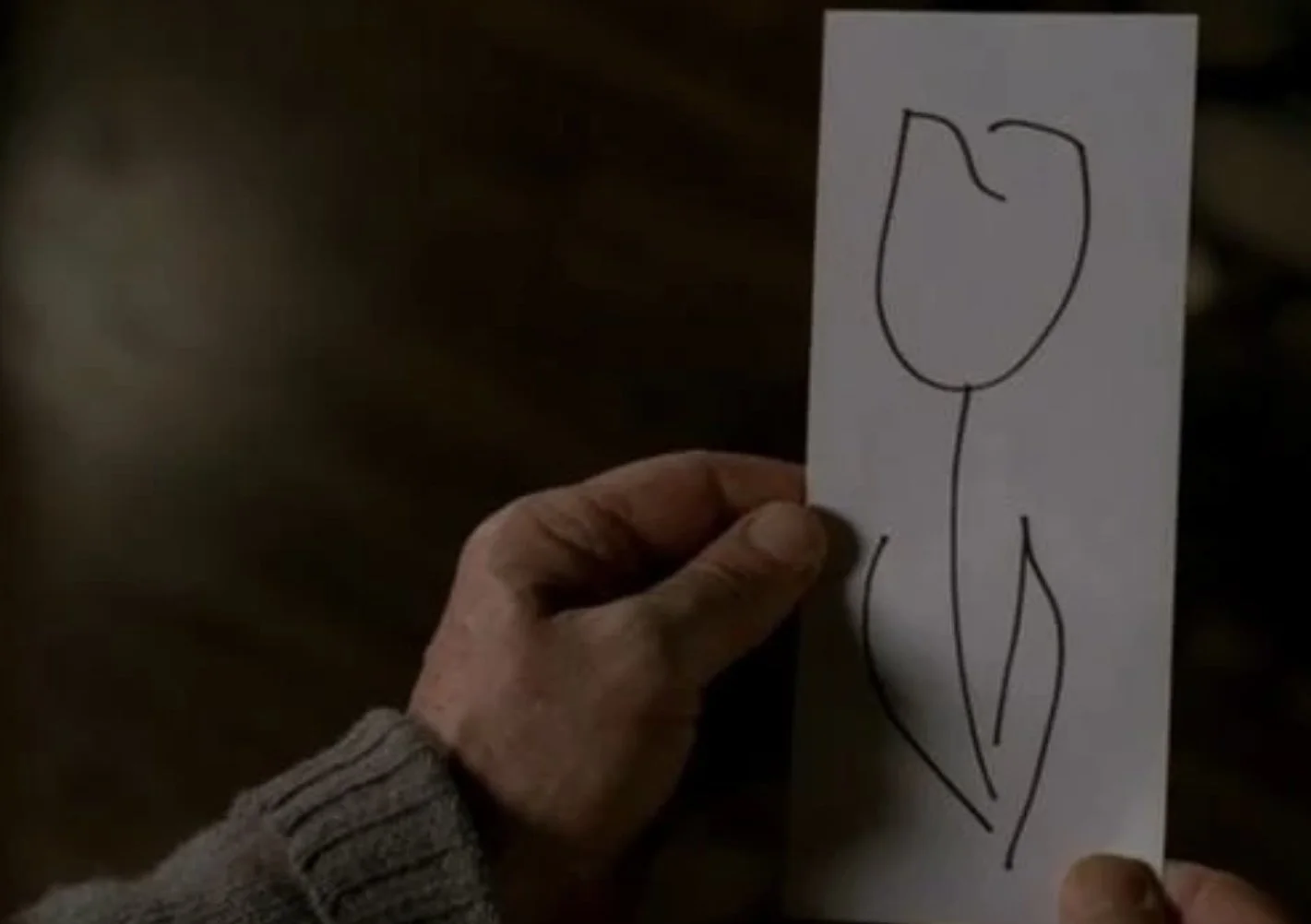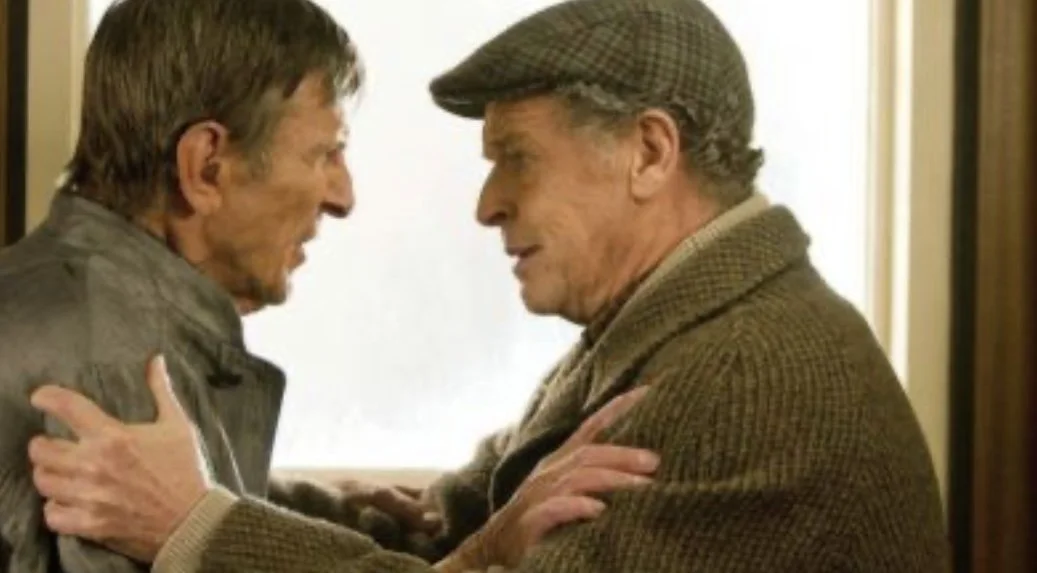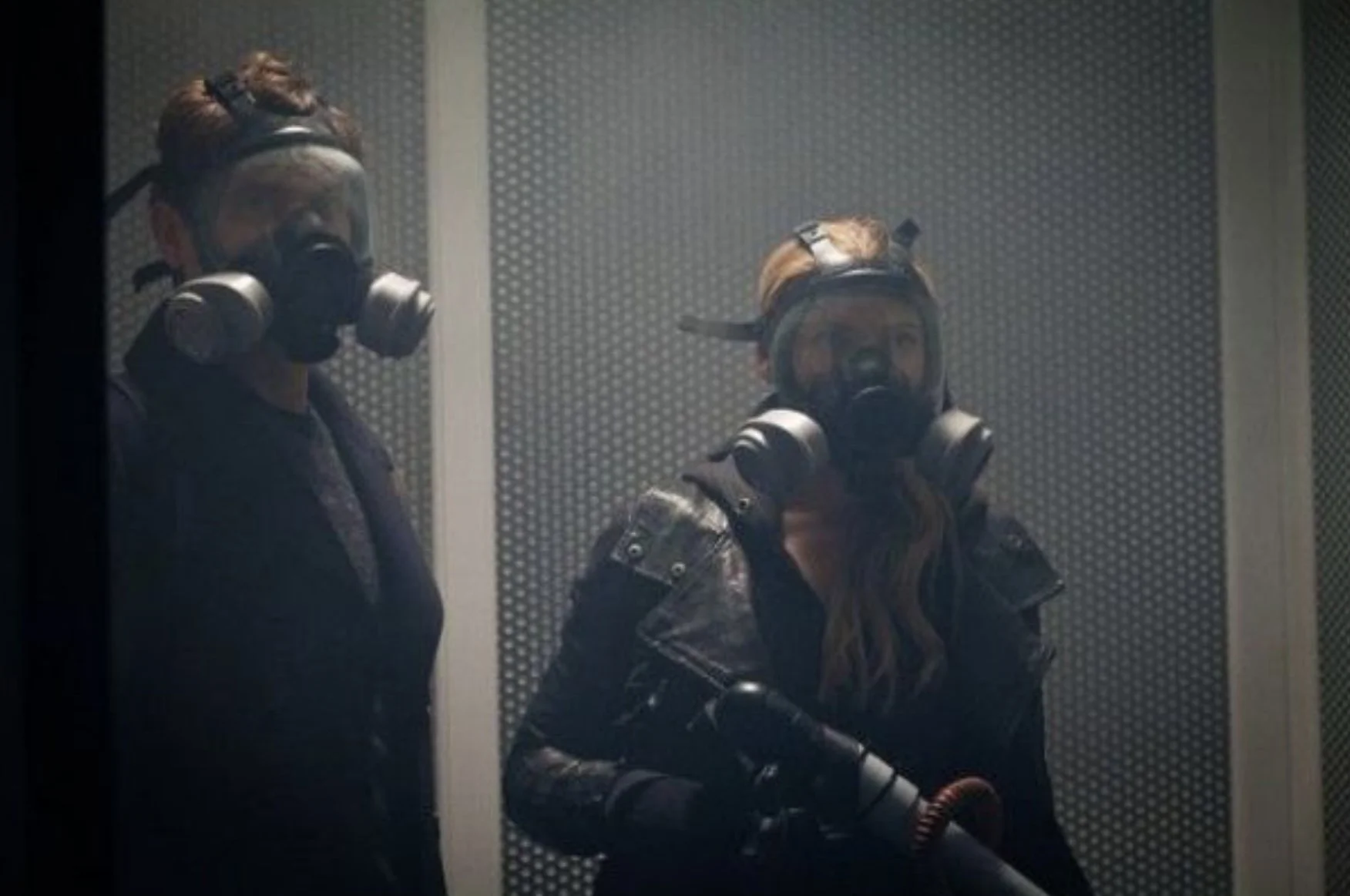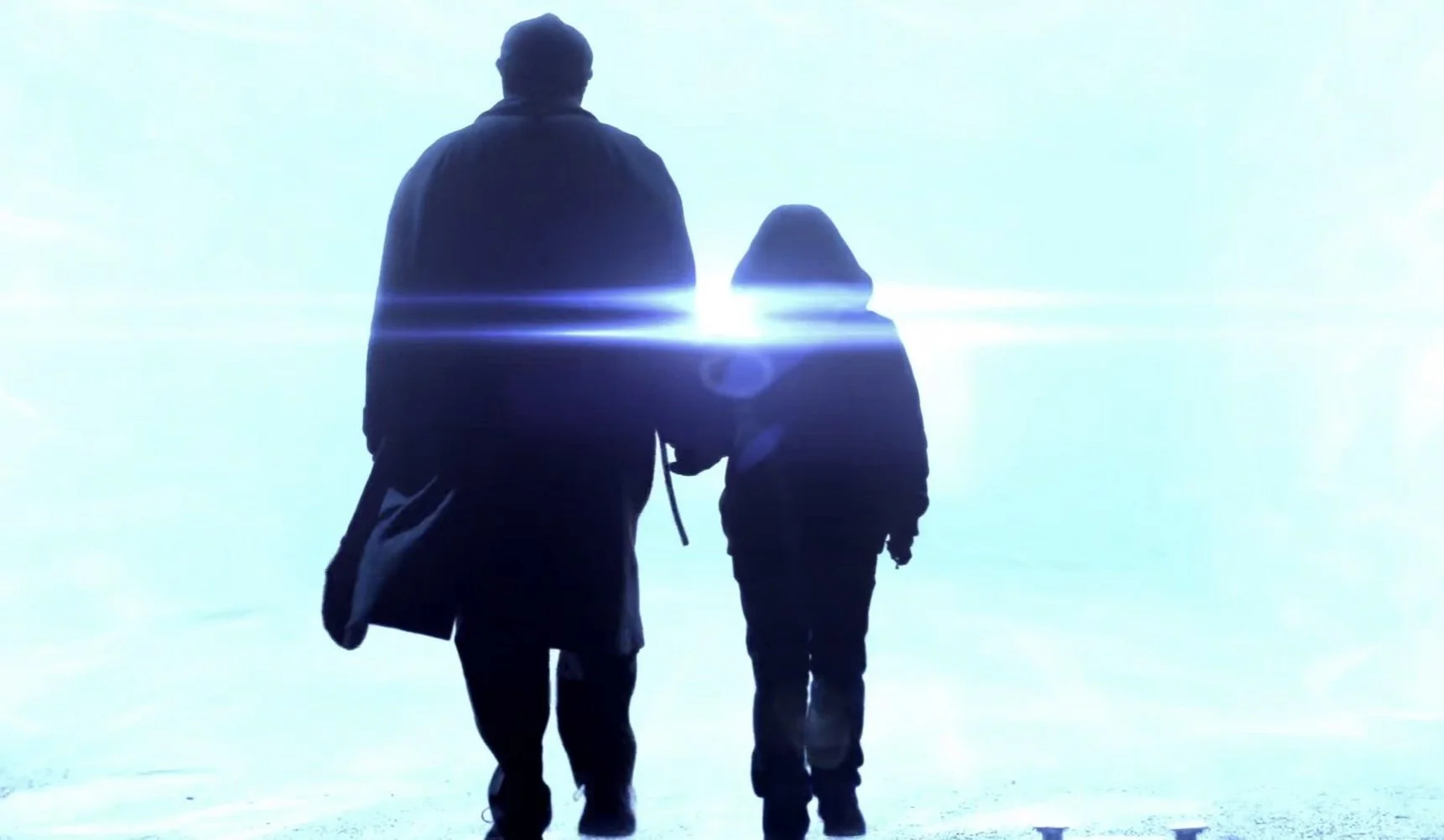Adventures In Fringe Science
When the X-Files came out in the 90s, I wanted to love it. I really did. And I felt like I should love it. But I didn’t. It was icky and creepy and most importantly, I didn’t actually like or care about the characters. By contrast, when Fringe started airing in the 2000s, I loved it. I loved the stories, I loved the overall plot arc, and I was deeply invested in the characters. I loved them and I cared about what happened to them. Although the story was most important, I felt the series was very much about people, unlike the X-Files. I am going to assume that any reader of this blog has at least a working knowledge of the television show, so I’m not going to do thorough recaps, and also, spoiler alert. If you aren’t familiar with the show, but still want to read this blog post, you might look at this Wikipedia article for an overview before you proceed. Here are my five favorite Fringe episodes, listed in chronological order. Oh, and again…spoiler alert.
August: Season 2, Episode 8
August kidnaps a bewildered girl in broad daylight.
In addition to discovering more about who our emotionless Observers are and what they do (in addition to observing), we have a story about the power of love. That’s always one of my favorite themes in any story, regardless of medium, and particularly when it is done well, as it is here. August, an Observer we haven’t met before, kidnaps a girl for unknown reasons at the start of the episode. It is only later that we realize he in fact saved her life by preventing her from being on board a plane which would later crash, and also that he’s been observing (and presumably saving) her for her whole life. His fellow Observers note that he has interrupted “the course her life was meant to take,” so they have dispatched an assassin to amend the error. In the end, frustrated by his inability to convince his fellow Observers that she is important enough to survive, August decides to sacrifice his own life to make her “important.” As he is succumbing to his injuries at the end of the episode, the “emotionless” August tells his fellow Observer September that he saved her because, “She was brave. She crossed my mind. Somehow she never left it. I think it’s what they call feelings. I think I love her. Will she be safe now?” September replies, “Yes. You made her important.” It’s really quite sad and beautiful.
White Tulip: Season 2, Episode 18
Peter Weller, looking not unlike his famous Robo-cop character. In fact, that’s a Faraday cage he’s implanted under his skin, wrapped around a built-in time machine.
Another beautiful and melancholy love story: Peter Weller plays Alistair Peck, an MIT professor who has built a time machine into his body and is attempting to travel back in time 10 months to prevent the death of his fiancée. Something keeps going wrong and he can only jump back about 12 hours. The major problem with his time machine is that it devours large amounts of energy, which it takes from the environment in which Peck lands. Early in the episode, he lands a couple times in a train, where he sucks all the energy out of every electronic device and every living being, leaving behind a train carriage full of corpses. In our Fringe team, Walter is wracked with guilt over his secret theft of Peter from the alternate universe many years ago and is trying to find a way to confess to Peter in hopes of forgiveness. Walter and Peck meet, as Walter tries to persuade Peck that saving his fiancée’s life will have unintended and unknown consequences. Walter tells Peck that his past experiences have converted him from a cold man of science into a man of science who also believes in God. Walter has prayed for a sign that God and Peter will forgive him; the sign he asked for is a white tulip. Peck points out that it’s the wrong season for tulips of any color. Their conversation is cut short by a SWAT team and Peck time travels away again. He does make it to his fiancée before she is killed but instead of saving her, he opts to tell her he loves her and then dies with her. In the present, Walter receives an envelope through the mail from an unknown sender (Peck), and when he opens it, it’s just a hand-drawn picture of a white tulip.
As much as I love this episode, I do have to take issue with how they deal with the paradoxes created by time travel. Just touching on the subject without pretending I’m covering it thoroughly, I’d point out that since Peck went back to the train car and killed all those people at least twice, he should have met himself doing it at least once. Also, when he went back 10 months and died with his fiancée, it was the present day Peck who went back, not the Peck of 10 months earlier. The earlier Peck would therefore have continued his life in the same trajectory as the current day Peck, and all of the events that occurred still would have happened. Instead, at the end of the episode, it is shown that none of it happened…the Fringe team was never called to the mass death incident on the train and never had occasion to meet Peck. Oh well…perfection is an aspiration, not a reality.
Brave New World, Parts 1 & 2: Season 4, Episodes 21 & 22
Not a love story this time (well, not primarily a love story…I can’t help but feel that much of Fringe was about love), but instead an action-packed finale, wrapping up all the threads (most of the threads) from the previous episodes. I think this is where Fringe should have ended.
Through a series of odd events, many of which require Olivia’s Cortexiphan powers to resolve, it becomes clear that Olivia and her powers are being primed for some purpose. Also throughout the first episode, Walter remains convinced that William Bell is still alive, although no one believes him. William Bell himself (played by the iconic and incomparable Leonard Nimoy) appears at the end of the first episode and takes Walter away, with a rather creepy, “Hello, old friend.”
Walter pleading with William Bell not to destroy two worlds.
At the beginning of the second episode, Bell’s master plan is revealed to be Walter’s original plan: remake the world. Or worlds, in this case, as the alternate universe will be unmade along with ours. Bell envisions a new Eden, populated with the creatures he created and has been collecting in his “ark.” This new world will be entirely free of people, since humans ruin everything. Walter tries in vain to persuade Bell to stop the destruction of two worlds, and Bell laughs, saying he couldn’t stop it if he tried. Olivia is the “battery” powering the destruction and then subsequent creation. Olivia and Peter find their way onto the cargo ship from which Bell is launching his new utopia. They confront Bell and Walter takes action, shooting Olivia in the head in a shocking turn of events. Olivia drops to the ground, dead. The convergence and destruction of the two worlds instantly ceases, and Bell disappears. Walter forces a weeping Peter to focus and help him remove the bullet from Olivia’s brain. They then hover over her corpse, waiting to see if her regenerative Cortexiphan will heal the damage. And we watch as the bullet hole in the middle of her forehead disappears and she takes a breath.
Cut to the hospital, and we discover that Olivia has recovered completely and she tells Peter that she is pregnant. This would have been a perfect place to end the series, but instead, we get half a season’s worth of episodes for the dystopian season 5, which I will get to in a moment. But first, one minor gripe: it’s one thing to regenerate brain cells. I can accept the twisty science that allows that to happen. But no drug can then imbue those brain cells with the memories that the destroyed cells possessed. I just can’t accept that. Yep, turns out that’s where I draw the line. So I’m okay with Olivia’s resurrection…just not okay with the fact that her personality and all her memories are completely intact. Oh well…it’s a minor point and I’m going to let it go. Maybe. Well, the next time I watch this episode, I’ll let it go. Maybe.
Now on to the final season, and the last of my favorite episodes, the finale of the entire series.
An Enemy Of Fate: Season 5, Episode 13
This season is set in 2036, and depicts an extremely depressing dystopian future. The Observers travelled back through time in 2015 and took over our world, killing many people and enslaving the rest. Only small pockets of resistance remain. The Observers did this because in the future, these former humans have managed to make the world uninhabitable, so they decide to come back in time and take it away from their ancestors. They are in the process of filling the atmosphere full of gases that they are used to breathing in the future, but which are poisonous to the indigenous humanity. So essentially, they come back in time to ruin the world centuries earlier than actually happened. Brilliant bit of short-sighted logic.
Most of the season follows our main characters (who have survived by spending much of the intervening time in amber and therefore not aging) as they desperately scramble to assemble a device imagined by Walter and the Observer September that will reset time. Essentially, the plan is to send September’s son Michael (an Observer child, seen earlier in the series, who is both more mentally acute than other Observers and also has deep emotions, unlike the other Observers) to 2167, to reveal himself to a scientist who is about to start a process that will turn humanity into the future Observer versions of themselves. The revelation is presumed to stop this process, as it will be seen to be unnecessary. We hope.
Peter and Olivia wreak utter havoc.
At any rate, the final episode is where everything comes together. It is action packed, with many call-backs to previous episodes, notably an action sequence where Olivia and Peter infiltrate Observer headquarters by pumping their air processors full of many nasty ingredients that we’ve seen in earlier episodes: the substance that makes skin grow over all your orifices, so you suffocate (charming); the tiny microbes that float in your drinking water and once imbibed, rapidly grow into Alien-like parasites that rip their way out of your torso (gross); the hallucinogen that is so powerful that your mind inflicts injuries on your body (terrifying but oddly beautiful); and so much more. Peter and Olivia tear through the headquarters, stepping over mangled, dying, grotesque bodies to retrieve the piece of tech they need to set up a wormhole to 2167. One can’t help but feel that the horrible fate suffered by the people in the building is genuinely poetic (gory) justice. Our intrepid couple then joins the remainder of the resistance, who are waiting to rendezvous at the place where the Observers are preparing their regular wormhole (which receives supplies from the future). The resistance engages in a gunfight to hold the position while they set up their own device to hijack the wormhole. September, who was going to accompany Michael into the future, is shot and killed, leaving Walter to lead the child into the wormhole. Peter already knew that his father might do this, so he is not surprised, but it’s still quite moving to watch him mouth to his father, “I love you, dad” as Walter walks into the future with Michael.
Walter and Michael step into the future.
Cut back to the scene at the beginning of this season, where Peter and Olivia are playing with their young daughter in the park. This was the day that the Observers invaded from the future. We watch as the same events unfold, and then the moment of invasion passes with no sign of the Observers. So it is clear that Walter has succeeded. Walter had told Peter (in 2036) that if he succeeded, he and Michael would vanish from the timeline (to resolve time-travel paradox; I didn’t quite follow this explanation but okay) at the point where the Observers had originally invaded. So we know that Walter is gone now and Peter will never see him again. Peter arrives home to find a piece of mail from Walter. When he opens it, it contains a drawing of a white tulip. The actual same drawing from the Season 2 episode of the same name. It’s a very satisfying full-circle ending.





